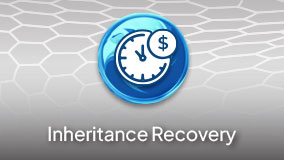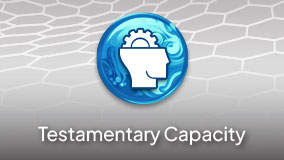ESTATE PLANNING IN CALIFORNIA
Estate planning in California is a vital aspect of financial management that ensures the proper distribution of assets and the protection of one’s legacy. It involves creating a comprehensive plan for the management and distribution of an individual’s estate, including assets, properties, investments, and personal belongings after their passing. Given the complexities and legal nuances involved in estate planning, seeking professional advice from an experienced estate planning attorney is highly recommended.
The experienced trust and estate attorneys at Antonyan Miranda can provide personalized guidance, ensure compliance with California laws, and help navigate potential pitfalls. We help our clients explore strategies for minimizing taxes, protecting assets from creditors, establishing trusts, and ensuring the smooth transfer of wealth to future generations.
What is the Estate Planning Process in California?
The goal of an Estate Plan is to efficiently transfer wealth to the next generation. There are two primary goals in Estate Plans 1) to avoid Probate; and 2) mitigate tax liability.
Estate planning in California begins with a thorough evaluation of an individual’s financial situation and personal goals. This assessment helps determine the appropriate estate planning tools and strategies to be employed. The process typically involves the following steps:
1. ASSET INVENTORY:
Identifying and documenting all assets, including real estate, bank accounts, investments, retirement accounts, life insurance policies, and business interests.
2. TYPE OF TRUST INSTRUMENT:
Establishing a trust can offer additional benefits, such as avoiding probate, minimizing estate taxes, and providing for the management of assets during incapacity. Depending on the family structure and nature of the Estate, there are different types of Trusts that provide the different options for each situation. These range from a standard revocable trust to irrevocable trusts. Depending on family dynamics and relative size of the estate, a combination of revocable and irrevocable trusts may be needed.
3. WILL:
In California, estates valued in excess of $184,500 in fair market value for assets subject to Probate proceedings need a Trust. There are situations where a Trust may not be necessary for the nature of the Estate and the goals of the individual can be accomplished through a simple Will.
4. POWERS OF ATTORNEY AND ADVANCE HEALTH CARE DIRECTIVE:
While most estate planning documents are designed to control after you’ve passed away, the Power of Attorney and Advance Health Care Directive are specifically tailored to control during your lifetime. In these documents, there is a designation for who is to make financial and medical decisions on your behalf in the event of incapacitation. Without pre-planning, this can be a litigated issue over who gets to make medical decisions and end-of-life care planning.
5. BENEFICIARY DESIGNATIONS:
Ensuring the proper designation of beneficiaries for retirement accounts, life insurance policies, and other assets. Proper beneficiary designation planning can assist in tax minimization and possibly negate the need for additional estate planning documents, if done properly.
What are some key considerations for Estate Planning?
Some key considerations include:
PROBATE:
California law requires that certain assets go through the probate process unless specific planning strategies, like a living trust, are implemented. Probate can be time-consuming, costly, and subject to public scrutiny, making it essential to explore options to avoid or minimize it.
COMMUNITY PROPERTY:
California follows community property laws, which dictate that assets acquired during marriage are generally considered jointly owned. Understanding the implications of community property can be crucial in estate planning, especially in blended families or second marriages.
ESTATE TAXES:
California does not impose its own estate tax, but federal estate taxes may still apply for larger estates. The commonly referred to “Death Tax” is currently only applicable to estates in excess of $12.92 Million dollars. Estate planning should consider strategies to minimize tax liabilities, such as gifting, charitable contributions, or establishing irrevocable trusts.
SPECIAL NEEDS PLANNING:
If an individual has a disabled or special needs child, proper planning is necessary to ensure their financial security without jeopardizing eligibility for government benefits.
MINOR CHILDREN:
Children cannot legally inherit property until they reach the age of 18. Should something happen to a child’s parents before they are legally of age to inherit, their inheritance will be held in a secured account supervised by the Probate Court through a guardianship proceeding. This can be avoided by having assets held in a Trust for that child’s benefit. In doing this you not only make sure that the funds are available for the child’s needs but also that those funds can be reasonably invested for the child and hopefully have grown significantly by the time the child gets to outrightly inherit.
ESTATE PLANNING DURING DIVORCE:
There are several nuances for how to go about estate planning during a divorce proceeding. Several crucial elements should be considered even before you file for divorce to ensure that should something happen to you during the divorce proceedings, your soon to be ex does not benefit from an untimely demise.
What Are Some Problems That Can Arise in Estate Planning?
While estate planning is essential for ensuring the smooth transfer of assets and the protection of one’s legacy, several problems can arise if the process is not properly executed. Professional guidance from the trust and estate attorneys at Antonyan Miranda can help address potential issues, ensure compliance with applicable laws, and promote a smooth and efficient transfer of assets according to the individual’s wishes. Some common issues in estate planning include:
1. LACK OF PLANNING OR OUTDATED DOCUMENTS:
Failing to engage in estate planning or neglecting to update estate planning documents regularly can lead to unintended consequences. Without a comprehensive plan in place, the distribution of assets may not align with the individual’s wishes or could result in disputes among beneficiaries. Considering the significant changes in the federal estate tax laws, most documents drafted before 2008 may contain unnecessary restrictions that can cost the family significantly if not addressed.
2. INADEQUATE ASSET INVENTORY:
Failing to identify and account for all assets during the estate planning process can lead to assets being overlooked or inadvertently excluded from the plan. This can result in an unequal distribution of assets or potential disputes among beneficiaries. A Trust document only works over the assets titled to the Trust. In order for the Trust to control all of your assets, it is important to routinely discuss with your estate planning attorney the makeup of your estate.
3. FAILURE TO ADDRESS CHANGING FAMILY DYNAMICS:
Changes in family circumstances, such as marriage, divorce, or the birth or adoption of children, can significantly impact estate planning. Failing to update estate planning documents to reflect these changes may result in unintended beneficiaries or disputes among family members.
4. INSUFFICIENT CONSIDERATION OF TAX IMPLICATIONS:
Estate taxes, gift taxes, and capital gains taxes can significantly impact the value of an estate. Failing to consider and plan for these tax implications may result in increased tax liabilities and diminished inheritances for beneficiaries.
5. INADEQUATE PLANNING FOR INCAPACITY:
Estate planning should address the possibility of incapacity or the need for long-term care. Failing to establish powers of attorney, healthcare directives, or guardianship provisions can lead to uncertainty and disputes when decisions need to be made on behalf of an incapacitated individual. Failures to account for incapacity can result in unnecessary conservatorship proceedings when a senior experiences cognitive decline in their old age.
6. IMPROPER TITLING OF ASSETS:
Improperly titling assets or failing to designate beneficiaries can undermine the intended distribution of assets. Assets that are not properly titled or lack beneficiary designations may be subject to probate or distributed according to default state laws, potentially conflicting with the individual’s wishes.
7. FAILURE TO ADDRESS DIGITAL ASSETS:
In today’s digital age, the management and disposition of digital assets, such as online accounts, cryptocurrencies, and intellectual property, should be considered in estate planning. Neglecting to address digital assets can lead to challenges in accessing or transferring them after an individual’s passing.
8. FAMILY DISPUTES AND LITIGATION:
Inadequate communication, unclear instructions, or unequal distribution of assets can fuel disputes and lead to costly litigation among family members. These conflicts can strain relationships and deplete the estate’s value through legal fees.
How Can an Attorney Help Me with Estate Planning in California?
An estate planning attorney plays a crucial role in assisting individuals with their estate planning needs in California. By engaging the trust and estate planning attorneys at Antonyan Miranda, you benefit from our expertise, experience, and understanding of the intricacies of California estate planning laws. We will work collaboratively with you to develop a comprehensive estate plan that protects your assets, preserves your legacy, and ensures your wishes are carried out effectively. Here are some ways our attorneys can help:
CUSTOMIZED ESTATE PLANS:
Our attorneys will assess your unique financial and personal circumstances, understand your goals and wishes, and develop a customized estate plan that aligns with your specific needs. We will guide you in choosing appropriate estate planning tools, such as wills, trusts, powers of attorney, and healthcare directives, tailored to achieve your objectives.
KNOWLEDGE OF CALIFORNIA LAWS:
Estate planning laws can vary from state to state. Our attorneys possess in-depth knowledge of the state’s specific laws, regulations, and tax considerations. We will ensure that your estate plan complies with California laws and maximizes the available benefits and protections.
MITIGATION OF TAX LIABILITIES:
Estate taxes, gift taxes, and capital gains taxes can significantly impact the value of an estate. Our attorneys will help you understand the tax implications and implement strategies to minimize tax liabilities, such as gifting strategies, charitable contributions, and the establishment of trusts.
PROBATE AVOIDANCE:
California’s probate process can be time-consuming, expensive, and subject to public scrutiny. Our attorneys can advise you on strategies to avoid or minimize probate, such as establishing living trusts or utilizing beneficiary designations, ensuring the efficient transfer of assets to your intended beneficiaries.
ASSET PROTECTION:
Our attorney can assist in protecting your assets from potential risks, such as creditors, lawsuits, or divorce. We can advise on the appropriate use of trusts and other legal structures to shield your assets and safeguard your wealth for future generations.
BUSINESS SUCCESSION PLANNING:
If you own a business, our attorneys can help you develop a comprehensive succession plan to ensure a smooth transition of ownership and management. This includes addressing issues related to valuation, control, and minimizing potential conflicts among family members or business partners.
REVIEW AND UPDATES:
Estate plans should be regularly reviewed and updated to reflect changes in personal circumstances, laws, and goals. Our attorneys can assist in reviewing and updating your estate plan to ensure its continued relevance and effectiveness.
MEDIATION AND DISPUTE RESOLUTION:
In the event of family disputes or challenges to the estate plan, our attorneys can provide guidance, mediate disputes, and work towards resolutions that protect your interests and maintain family harmony.
EXECUTOR AND TRUSTEE GUIDANCE:
If you appoint an executor or trustee to manage your estate or trust, our attorneys can provide guidance and support to ensure they fulfill their duties appropriately and in accordance with California law.
Estate planning is a crucial process for individuals and families in California to secure their financial future, protect their loved ones, and preserve their legacy. With its unique legal considerations, seeking the professional advice of the attorneys at Antonyan Miranda is essential for developing a comprehensive estate plan tailored to individual needs. By taking the necessary steps and employing appropriate strategies, our attorneys can help you achieve peace of mind knowing your assets are protected, your wishes are fulfilled, and your loved ones are taken care of according to their intentions. Call us at 619-255-7744 to speak with one of our Concierge attorneys or visit us at www.expertprobatelaw.com for more information.
FOLLOW US!
ESTATE PLANNING IN CALIFORNIA
Estate planning in California is a vital aspect of financial management that ensures the proper distribution of assets and the protection of one’s legacy. It involves creating a comprehensive plan for the management and distribution of an individual’s estate, including assets, properties, investments, and personal belongings after their passing. Given the complexities and legal nuances involved in estate planning, seeking professional advice from an experienced estate planning attorney is highly recommended.
The experienced trust and estate attorneys at Antonyan Miranda can provide personalized guidance, ensure compliance with California laws, and help navigate potential pitfalls. We help our clients explore strategies for minimizing taxes, protecting assets from creditors, establishing trusts, and ensuring the smooth transfer of wealth to future generations.
What is the Estate Planning Process in California?
The goal of an Estate Plan is to efficiently transfer wealth to the next generation. There are two primary goals in Estate Plans 1) to avoid Probate; and 2) mitigate tax liability.
Estate planning in California begins with a thorough evaluation of an individual’s financial situation and personal goals. This assessment helps determine the appropriate estate planning tools and strategies to be employed. The process typically involves the following steps:
1. ASSET INVENTORY:
Identifying and documenting all assets, including real estate, bank accounts, investments, retirement accounts, life insurance policies, and business interests.
2. TYPE OF TRUST INSTRUMENT:
Establishing a trust can offer additional benefits, such as avoiding probate, minimizing estate taxes, and providing for the management of assets during incapacity. Depending on the family structure and nature of the Estate, there are different types of Trusts that provide the different options for each situation. These range from a standard revocable trust to irrevocable trusts. Depending on family dynamics and relative size of the estate, a combination of revocable and irrevocable trusts may be needed.
3. WILL:
In California, estates valued in excess of $184,500 in fair market value for assets subject to Probate proceedings need a Trust. There are situations where a Trust may not be necessary for the nature of the Estate and the goals of the individual can be accomplished through a simple Will.
4. POWERS OF ATTORNEY AND ADVANCE HEALTH CARE DIRECTIVE:
While most estate planning documents are designed to control after you’ve passed away, the Power of Attorney and Advance Health Care Directive are specifically tailored to control during your lifetime. In these documents, there is a designation for who is to make financial and medical decisions on your behalf in the event of incapacitation. Without pre-planning, this can be a litigated issue over who gets to make medical decisions and end-of-life care planning.
5. BENEFICIARY DESIGNATIONS:
Ensuring the proper designation of beneficiaries for retirement accounts, life insurance policies, and other assets. Proper beneficiary designation planning can assist in tax minimization and possibly negate the need for additional estate planning documents, if done properly.
What are some key considerations for Estate Planning?
Some key considerations include:
PROBATE:
California law requires that certain assets go through the probate process unless specific planning strategies, like a living trust, are implemented. Probate can be time-consuming, costly, and subject to public scrutiny, making it essential to explore options to avoid or minimize it.
COMMUNITY PROPERTY:
California follows community property laws, which dictate that assets acquired during marriage are generally considered jointly owned. Understanding the implications of community property can be crucial in estate planning, especially in blended families or second marriages.
ESTATE TAXES:
California does not impose its own estate tax, but federal estate taxes may still apply for larger estates. The commonly referred to “Death Tax” is currently only applicable to estates in excess of $12.92 Million dollars. Estate planning should consider strategies to minimize tax liabilities, such as gifting, charitable contributions, or establishing irrevocable trusts.
SPECIAL NEEDS PLANNING:
If an individual has a disabled or special needs child, proper planning is necessary to ensure their financial security without jeopardizing eligibility for government benefits.
MINOR CHILDREN:
Children cannot legally inherit property until they reach the age of 18. Should something happen to a child’s parents before they are legally of age to inherit, their inheritance will be held in a secured account supervised by the Probate Court through a guardianship proceeding. This can be avoided by having assets held in a Trust for that child’s benefit. In doing this you not only make sure that the funds are available for the child’s needs but also that those funds can be reasonably invested for the child and hopefully have grown significantly by the time the child gets to outrightly inherit.
ESTATE PLANNING DURING DIVORCE:
There are several nuances for how to go about estate planning during a divorce proceeding. Several crucial elements should be considered even before you file for divorce to ensure that should something happen to you during the divorce proceedings, your soon to be ex does not benefit from an untimely demise.
What Are Some Problems That Can Arise in Estate Planning?
While estate planning is essential for ensuring the smooth transfer of assets and the protection of one’s legacy, several problems can arise if the process is not properly executed. Professional guidance from the trust and estate attorneys at Antonyan Miranda can help address potential issues, ensure compliance with applicable laws, and promote a smooth and efficient transfer of assets according to the individual’s wishes. Some common issues in estate planning include:
1. LACK OF PLANNING OR OUTDATED DOCUMENTS:
Failing to engage in estate planning or neglecting to update estate planning documents regularly can lead to unintended consequences. Without a comprehensive plan in place, the distribution of assets may not align with the individual’s wishes or could result in disputes among beneficiaries. Considering the significant changes in the federal estate tax laws, most documents drafted before 2008 may contain unnecessary restrictions that can cost the family significantly if not addressed.
2. INADEQUATE ASSET INVENTORY:
Failing to identify and account for all assets during the estate planning process can lead to assets being overlooked or inadvertently excluded from the plan. This can result in an unequal distribution of assets or potential disputes among beneficiaries. A Trust document only works over the assets titled to the Trust. In order for the Trust to control all of your assets, it is important to routinely discuss with your estate planning attorney the makeup of your estate.
3. FAILURE TO ADDRESS CHANGING FAMILY DYNAMICS:
Changes in family circumstances, such as marriage, divorce, or the birth or adoption of children, can significantly impact estate planning. Failing to update estate planning documents to reflect these changes may result in unintended beneficiaries or disputes among family members.
4. INSUFFICIENT CONSIDERATION OF TAX IMPLICATIONS:
Estate taxes, gift taxes, and capital gains taxes can significantly impact the value of an estate. Failing to consider and plan for these tax implications may result in increased tax liabilities and diminished inheritances for beneficiaries.
5. INADEQUATE PLANNING FOR INCAPACITY:
Estate planning should address the possibility of incapacity or the need for long-term care. Failing to establish powers of attorney, healthcare directives, or guardianship provisions can lead to uncertainty and disputes when decisions need to be made on behalf of an incapacitated individual. Failures to account for incapacity can result in unnecessary conservatorship proceedings when a senior experiences cognitive decline in their old age.
6. IMPROPER TITLING OF ASSETS:
Improperly titling assets or failing to designate beneficiaries can undermine the intended distribution of assets. Assets that are not properly titled or lack beneficiary designations may be subject to probate or distributed according to default state laws, potentially conflicting with the individual’s wishes.
7. FAILURE TO ADDRESS DIGITAL ASSETS:
In today’s digital age, the management and disposition of digital assets, such as online accounts, cryptocurrencies, and intellectual property, should be considered in estate planning. Neglecting to address digital assets can lead to challenges in accessing or transferring them after an individual’s passing.
8. FAMILY DISPUTES AND LITIGATION:
Inadequate communication, unclear instructions, or unequal distribution of assets can fuel disputes and lead to costly litigation among family members. These conflicts can strain relationships and deplete the estate’s value through legal fees.
How Can an Attorney Help Me with Estate Planning in California?
An estate planning attorney plays a crucial role in assisting individuals with their estate planning needs in California. By engaging the trust and estate planning attorneys at Antonyan Miranda, you benefit from our expertise, experience, and understanding of the intricacies of California estate planning laws. We will work collaboratively with you to develop a comprehensive estate plan that protects your assets, preserves your legacy, and ensures your wishes are carried out effectively. Here are some ways our attorneys can help:
CUSTOMIZED ESTATE PLANNING:
Our attorneys will assess your unique financial and personal circumstances, understand your goals and wishes, and develop a customized estate plan that aligns with your specific needs. We will guide you in choosing appropriate estate planning tools, such as wills, trusts, powers of attorney, and healthcare directives, tailored to achieve your objectives.
KNOWLEDGE OF CALIFORNIA LAWS:
Estate planning laws can vary from state to state. Our attorneys possess in-depth knowledge of the state’s specific laws, regulations, and tax considerations. We will ensure that your estate plan complies with California laws and maximizes the available benefits and protections.
MITIGATION OF TAX LIABILITIES:
Estate taxes, gift taxes, and capital gains taxes can significantly impact the value of an estate. Our attorneys will help you understand the tax implications and implement strategies to minimize tax liabilities, such as gifting strategies, charitable contributions, and the establishment of trusts.
PROBATE AVOIDANCE:
California’s probate process can be time-consuming, expensive, and subject to public scrutiny. Our attorneys can advise you on strategies to avoid or minimize probate, such as establishing living trusts or utilizing beneficiary designations, ensuring the efficient transfer of assets to your intended beneficiaries.
ASSET PROTECTION:
Our attorney can assist in protecting your assets from potential risks, such as creditors, lawsuits, or divorce. We can advise on the appropriate use of trusts and other legal structures to shield your assets and safeguard your wealth for future generations.
BUSINESS SUCCESSION PLANNING:
If you own a business, our attorneys can help you develop a comprehensive succession plan to ensure a smooth transition of ownership and management. This includes addressing issues related to valuation, control, and minimizing potential conflicts among family members or business partners.
REVIEW AND UPDATES:
Estate plans should be regularly reviewed and updated to reflect changes in personal circumstances, laws, and goals. Our attorneys can assist in reviewing and updating your estate plan to ensure its continued relevance and effectiveness.
MEDIATION AND DISPUTE RESOLUTION:
In the event of family disputes or challenges to the estate plan, our attorneys can provide guidance, mediate disputes, and work towards resolutions that protect your interests and maintain family harmony.
EXECUATOR AND TRUSTEE GUIDANCE:
If you appoint an executor or trustee to manage your estate or trust, our attorneys can provide guidance and support to ensure they fulfill their duties appropriately and in accordance with California law.
Estate planning is a crucial process for individuals and families in California to secure their financial future, protect their loved ones, and preserve their legacy. With its unique legal considerations, seeking the professional advice of the attorneys at Antonyan Miranda is essential for developing a comprehensive estate plan tailored to individual needs. By taking the necessary steps and employing appropriate strategies, our attorneys can help you achieve peace of mind knowing your assets are protected, your wishes are fulfilled, and your loved ones are taken care of according to their intentions. Call us at 619-255-7744 to speak with one of our Concierge attorneys or visit us at www.expertprobatelaw.com for more information.


























